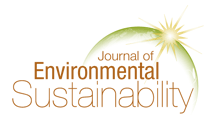Creative Commons License

This work is licensed under a Creative Commons Attribution 4.0 International License.
Abstract
The benefits of improving corporate environmental and social performance have been addressed by an increasing number of companies in the past two decades. However, not all companies have been interested in the topic since it first came up. Thus, companies’ attempts to quantify sustainability performance typically start with a qualitative understanding of the impacts of the environment and society on corporate economic performance and vice versa. At the forefront of corporate sustainability accounting practice, research has highlighted the attempt of various companies to expand and transform sustainability information collection practices into regular, day-to-day activities known as sustainability accounting. However, this step – referred to as roll out – is related to various obstacles that hinder its success. The following conceptual paper identifies the obstacles in the roll-out process and suggests an approach to deal with them. Based on various studies in the field, the developed approach presents typical challenges and highlights their significance for the success of the roll out of corporate sustainability accounting. The contribution of the paper lies in the identification of decision-situations which – albeit essential for the success of the roll out – appear to be neglected by many decision makers, often with undesired consequences. The novelty of the findings can support higher and middle management in their transition from smallscale, project-based collection, analysis and provision of decision-making information to a company-wide, self-sustaining management accounting system that integrates social and environmental impacts of and upon business. This transition can contribute to the long-term success of the enterprise and reduce its externalities on environment and society
Recommended Citation
Zvezdov, Dimitar
(2012)
"Rolling out Corporate Sustainability Accounting: A Set of Challenges,"
Journal of Environmental Sustainability: Vol. 2:
Iss.
2, Article 3.
DOI: 10.14448/jes.02.0003
Available at:
https://repository.rit.edu/jes/vol2/iss2/3
